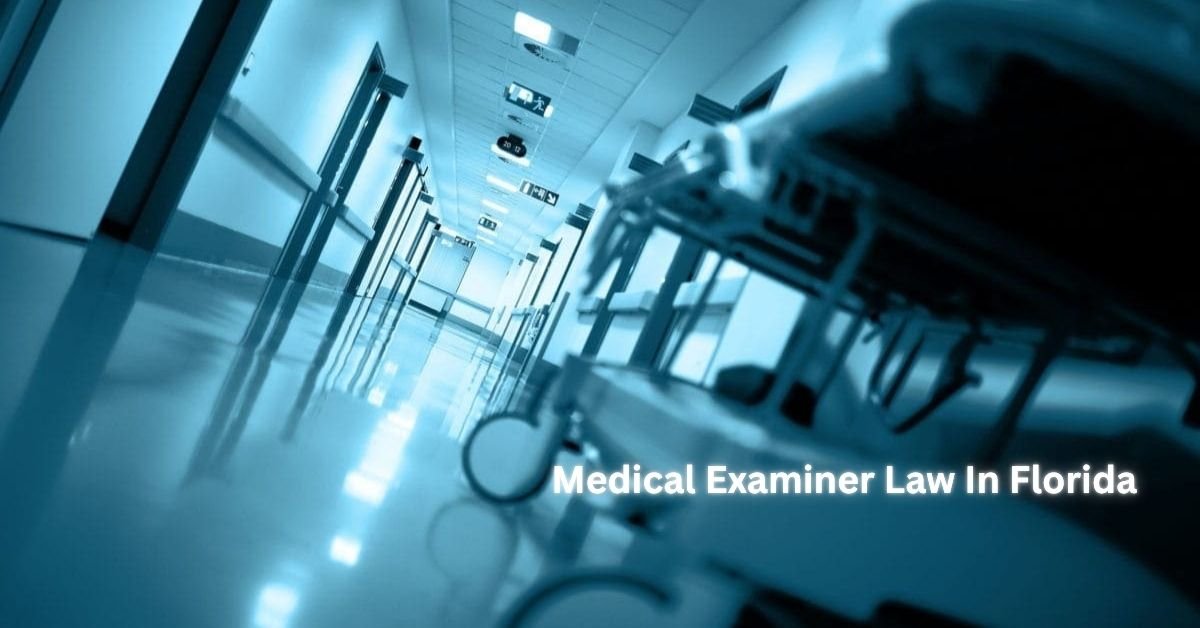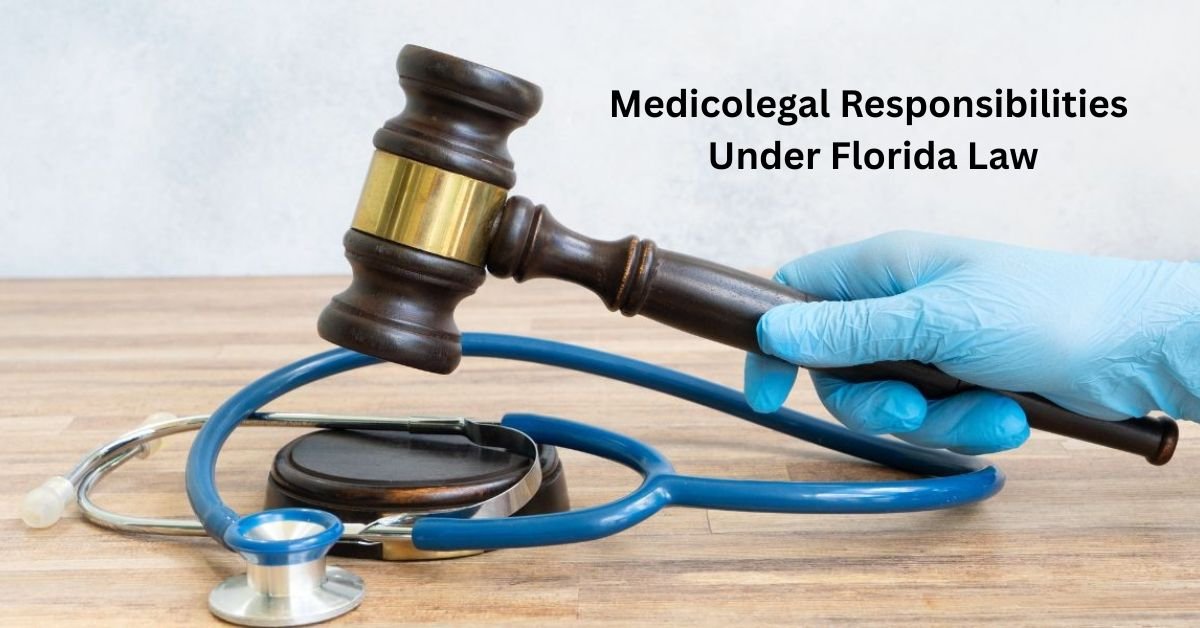The legal foundation for death investigations in Florida is codified primarily under Chapter 406 of the Florida Statutes, which outlines the authority, responsibilities, and procedures of medical examiners. This framework ensures that all deaths occurring under certain conditions are subject to official medicolegal scrutiny, protecting public interest, supporting the justice system, and contributing to public health surveillance.
Legal Authority and Jurisdiction
The statutory authority for death investigations in Florida resides with the District Medical Examiner System, which operates under the oversight of the Florida Medical Examiners Commission (MEC), a division of the Florida Department of Law Enforcement (FDLE).
Key Statute:
- F.S. §406.11 – Defines the types of deaths that must be reported to and investigated by the medical examiner.
Under this statute, the medical examiner has legal jurisdiction over a death if it occurs under any of the following conditions:
- Death by violence, suicide, or accident
- Sudden death of a person in apparent good health
- Death of a person not under the care of a physician
- Death in a correctional facility, psychiatric hospital, or in state custody
- Death occurring under suspicious, unusual, or unnatural circumstances
- Death of a child under the age of 18 from suspected abuse or neglect
- Death that occurs as a result of employment
- Death involving a threat to public health
The medical examiner is legally empowered to take custody of the body, conduct an autopsy, and secure any relevant physical or medical evidence necessary for determining the cause and manner of death.
Role of the Medical Examiner
Each of Florida’s 25 medical examiner districts is staffed by one or more appointed medical examiners—licensed physicians, typically board-certified in forensic pathology. They operate with independence in conducting postmortem examinations and issuing official determinations regarding:
- Cause of Death (medical reason for death)
- Manner of Death (natural, accidental, suicide, homicide, or undetermined)
Medical examiners may also order toxicology tests, review medical history, examine the death scene, and collaborate with law enforcement as part of the investigative process.
Reporting and Notification Requirements
According to Florida law:
- Any person, including healthcare providers, law enforcement officers, or funeral directors, who becomes aware of a death under the criteria in F.S. §406.11, is required to report it immediately to the district medical examiner.
- Law enforcement agencies typically act as the primary point of contact, securing the scene until the medical examiner assumes jurisdiction.
Failure to report a qualifying death may result in legal penalties and compromise the integrity of the investigation.
Autopsies and Consent
Under F.S. §406.13, medical examiners have the authority to perform autopsies without consent when a death falls under their jurisdiction. In other cases not mandated by law, an autopsy may be performed only with the consent of the next of kin or legal representative.
All autopsies performed must adhere to recognized standards in forensic pathology and must be documented in writing, including photographic and laboratory findings. These reports become part of the official record and are generally available to the public unless otherwise exempted by statute.
Confidentiality and Public Records
Florida’s Sunshine Laws (Chapter 119, F.S.) make most government records, including autopsy reports, publicly accessible. However, exemptions apply to:
- Active criminal investigations
- Autopsy photographs and recordings under F.S. §406.135, which are confidential unless a court grants access
- Juvenile victims of homicide or abuse, to protect family privacy
These restrictions aim to balance transparency with dignity and sensitivity for the decedent and their families.
Coordination with Law Enforcement and Legal Authorities
Death investigations often require collaboration with:
- Local and state law enforcement agencies
- State Attorneys’ Offices (for potential criminal proceedings)
- Public health departments (in cases of infectious disease or substance-related deaths)
In homicide or suspicious death cases, the medical examiner’s findings may serve as critical forensic evidence, and the examiner may be called to testify in court as an expert witness.
Child Death and Abuse Cases
Florida mandates additional scrutiny in the investigation of child deaths. Under F.S. §39.301, any child fatality suspected to be related to abuse or neglect must be reported to the Department of Children and Families (DCF) and investigated jointly with law enforcement and the medical examiner.
This multidisciplinary approach ensures comprehensive case review and compliance with both criminal and child welfare statutes.
Mass Fatalities and Emergency Protocols
In the event of disasters—natural, industrial, or criminal—the MEC coordinates statewide protocols for mass fatality management. Florida medical examiners may activate mutual aid agreements, deploy mobile morgue units, and use DNA analysis for identification. These protocols are governed by emergency management regulations and interagency memoranda of understanding.
Conclusion
Florida’s death investigation laws establish a robust medicolegal framework to ensure that deaths under specific conditions are examined with scientific rigor and legal integrity. The statutory role of the medical examiner, in cooperation with law enforcement, courts, and health authorities, ensures public accountability, supports criminal justice, and contributes to broader public health goals. The system’s legal structure—anchored in Chapter 406 of the Florida Statutes—reflects the state’s commitment to transparency, professional standards, and the ethical treatment of the deceased.
Key Legal References:
- Florida Statutes Chapter 406: http://www.leg.state.fl.us/statutes
- F.S. §406.11 – Reportable deaths
- F.S. §406.13 – Autopsy authority
- F.S. §406.135 – Exemptions to public disclosure
- Florida Public Records Law (Chapter 119, F.S.)
- F.S. §39.301 – Child death investigations












